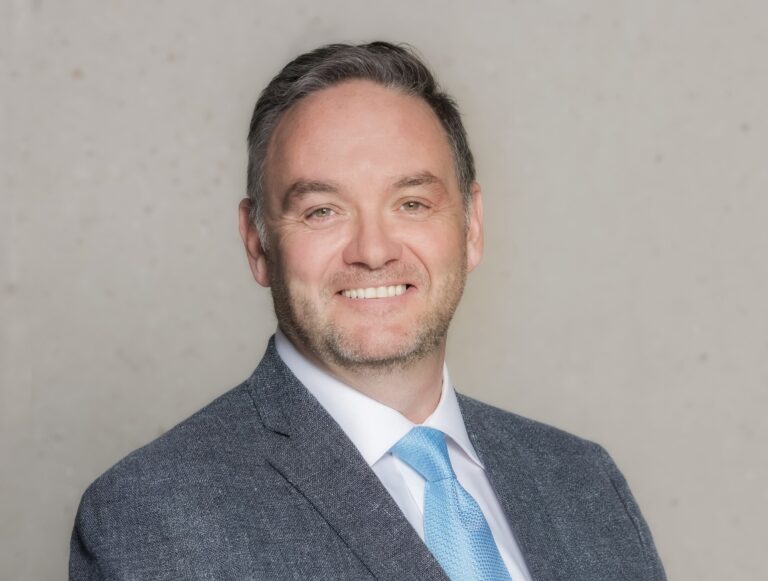If not managed properly, diabetes can have a devastating effect on your body. The Diabetes Rewind Programme proves that successful intervention can prevent this from happening.
It is estimated that around 10 or 15 per cent of Bermuda’s population has diabetes, however Andrew Jamieson, endocrinologist at the Family Practice Group, thinks it could be higher.
To put this figure into perspective, around six per cent of the UK population has diabetes; worldwide, it’s around nine per cent. There are two main types of diabetes, type 1 and type 2. The majority of people living with diabetes have type 2.
Type 1 and type 2 diabetes
As explained by Dr Jamieson, type 1 diabetes is caused by autoimmune destruction of the pancreas and the portion of it that makes insulin. Individuals with type 1 diabetes will make no insulin at all.
Insulin is a hormone that regulates blood glucose, also known as blood sugar. Without it, your blood sugar levels will get too high, which can cause life-threatening conditions. Individuals with type 1 diabetes have to check their blood sugar levels regularly and administer insulin accordingly.
Type 1 diabetes typically occurs in children from around the age of six months to between seven and ten years of age, however some people can develop type 1 in adulthood. It isn’t known exactly what triggers its development, but genetic factors create a higher risk.
Type 2 diabetes occurs in a circumstance where there is a resistance to insulin. Initially the pancreas makes relatively too much insulin and later, with the passage of time, can start to run out of insulin.
“The biggest drivers of the development of type 2 diabetes are body weight and genetic factors,” said Dr Jamieson. “If both parents have type 2 diabetes, it’s probably a question of when, rather than if, you will develop diabetes. If you have one parent with it, it’s anything between a 30 to 40 per cent lifetime risk.”
After the genetic risk, increased body weight, particularly obesity, is the big driver as this is linked to insulin resistance. Historically, type 2 diabetes has been associated with older age but, he warned, this is changing: “There are many young people, not just in Bermuda, but worldwide, who are developing diabetes in their early teenage years.”
How do you know if you have diabetes?
“Classic symptoms are going to the bathroom more frequently to pass urine, being thirsty, getting up at night to go to the bathroom frequently, and losing weight despite having a good appetite,” said Dr Jamieson, adding that while the symptoms are similar for both types of diabetes, in the case of type 1, the individuals are more likely to be younger and the symptoms are more likely to occur quicker.
Diabetes can be diagnosed with a simple blood test.
Complications
If individuals with diabetes don’t administer their medications properly, or don’t take good care of themselves, severe complications can occur, including kidney disease, blindness, heart attacks, stroke and amputations.
Dr Jamieson emphasised that for people with diabetes, moderation is key when it comes to diet.
“There’s no restrictions on what anyone can take, but portion sizes need to be appropriate, you need to take into account whether you’re exercising or not. People can drink alcohol if they have diabetes, but they may have to take more notice of the amount.”
With type 2 diabetes the aim is to “try and manage it with lifestyle guidance, diet and exercise”, he added. As time passes, individuals may require medication either in the form of tablets or injectable treatments.
Something that diabetics should never do, he warned, is smoke as smoking “affects the lining of the blood vessels”.
High blood sugar, particularly over a prolonged period of time, also damages the blood vessels increasing the risk of complications. The kidneys and the back of the eye, for example, have the “most fragile and smallest blood vessels” making them particularly vulnerable and, if damaged, can lead to kidney disease and blindness.
When the larger blood vessels become damaged, this can cause heart attacks, strokes or loss of blood supply to the legs, which could result in amputation.
Diabetes remission
Type 1 diabetes needs to be carefully managed for life, however type 2 can actually go into remission. Weight loss and a healthier lifestyle play a huge role.
Drugs such as Ozempic have helped some patients to lose weight but Dr Jamieson warned that “there are side effects from any medication” and women who want to get pregnant should stop taking them before conception.
A programme with proven success at putting type 2 diabetics into remission is the 12-month Diabetes Rewind Programme, run by Argus and the Bermuda Diabetes Association. Educators and dietitians put together a bespoke programme for each participant, which includes a glucose monitoring device to help them understand how their blood sugar levels change throughout the day and see their improvement over time.
In addition to diet, participants are also encouraged to take regular exercise.
“It doesn’t have to be the gym or triathlon training, but if you go for a 15- or 20-minute walk after breakfast, you notice the effect of that lowering the peak blood sugar,” Dr Jamieson explained.
“Over the course of 12 months, there’s repeated visits to make sure that individuals are making progress. There’s medical oversight to make sure that if we need to stop medicines we do so safely. The hope is that people will stop as many of the diabetes-related medicines as they can.”
Does it work?
“So far we’ve seen positive results in terms of reduction in medication administration, lowering of blood pressure, lowering of weight. So, it works, but it does require people to engage,” Dr Jamieson said.
For more information about the Diabetes Rewind Programme visit https://www.diabetes.bm/diabetes/diabetes-rewind or call the Bermuda Diabetes Association on 297-8427. The programme is offered at no charge to anyone insured by Argus.

